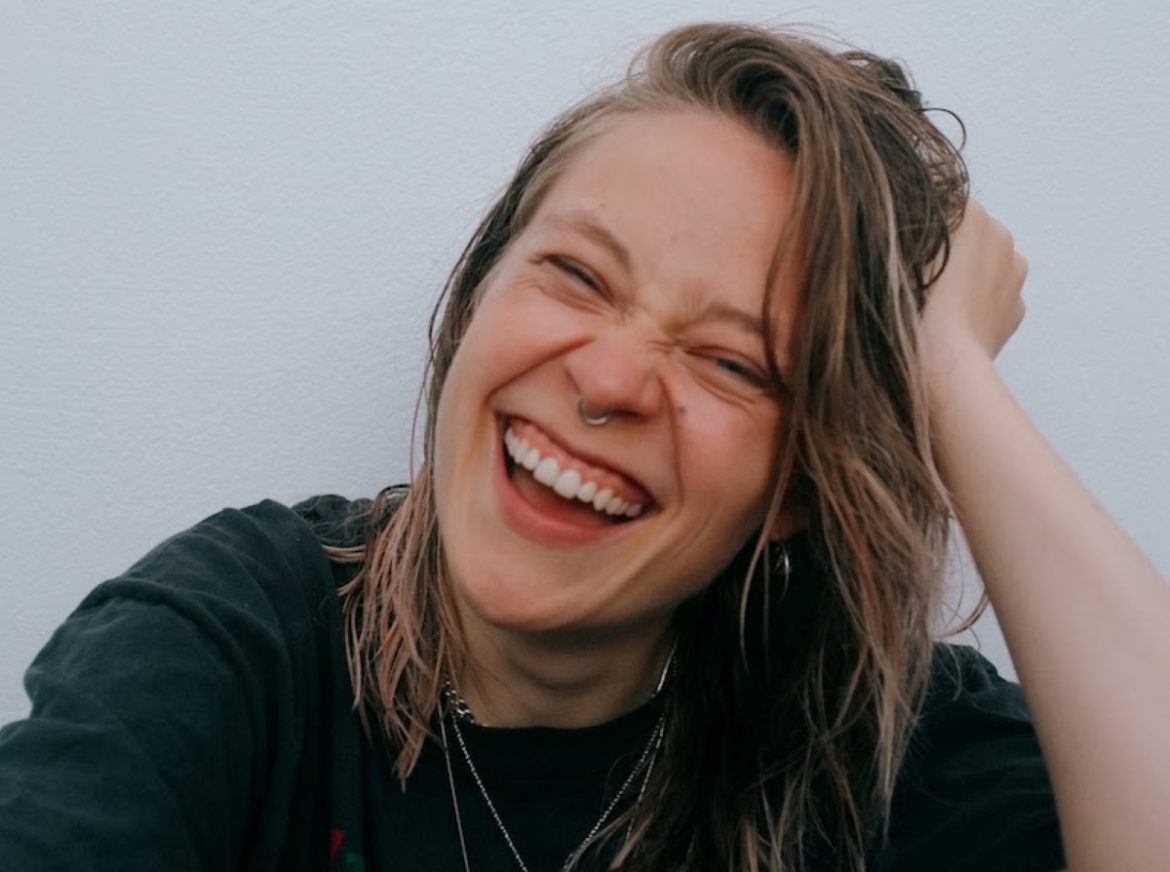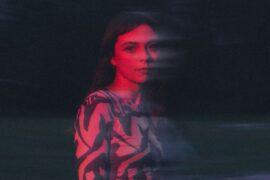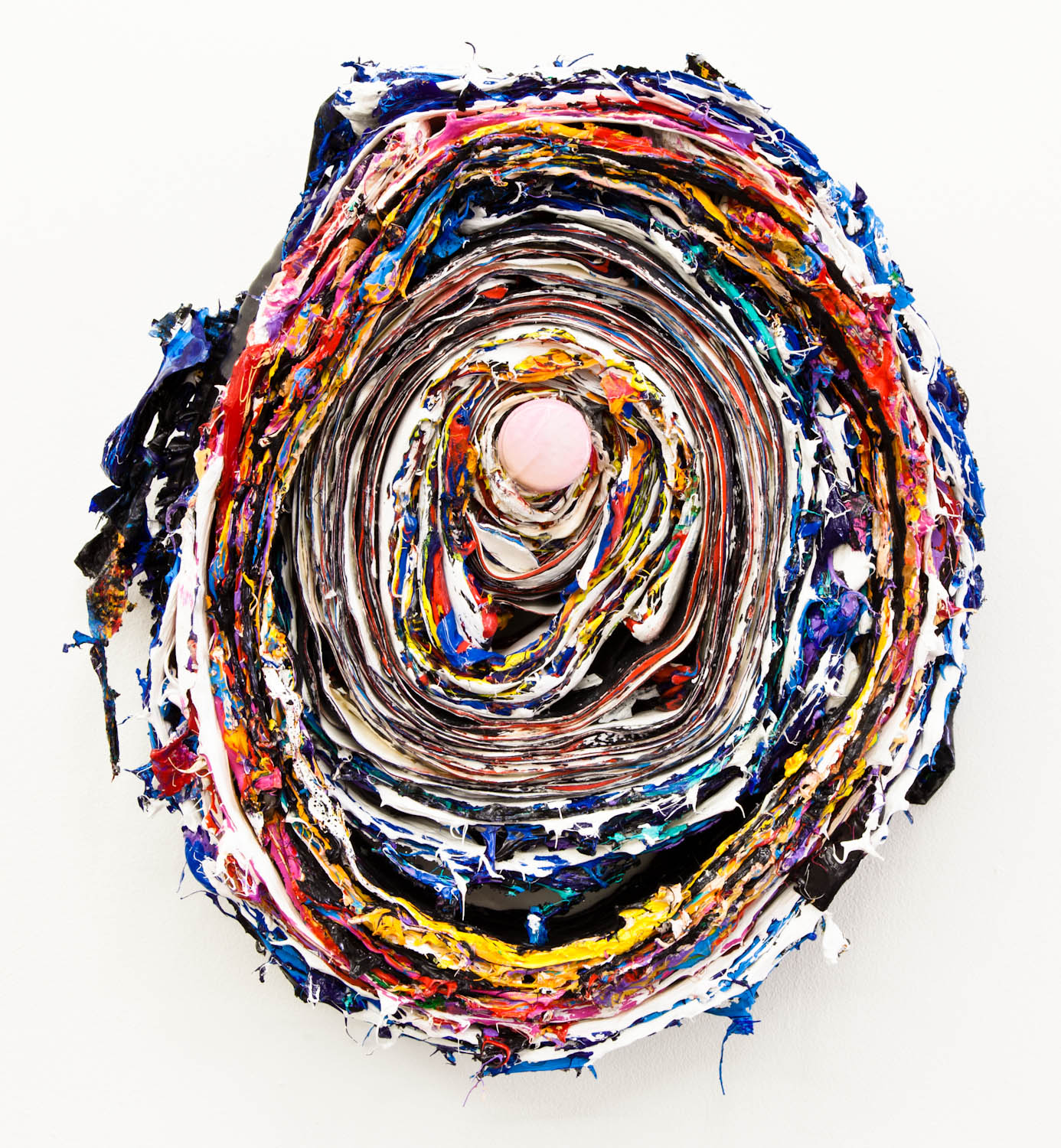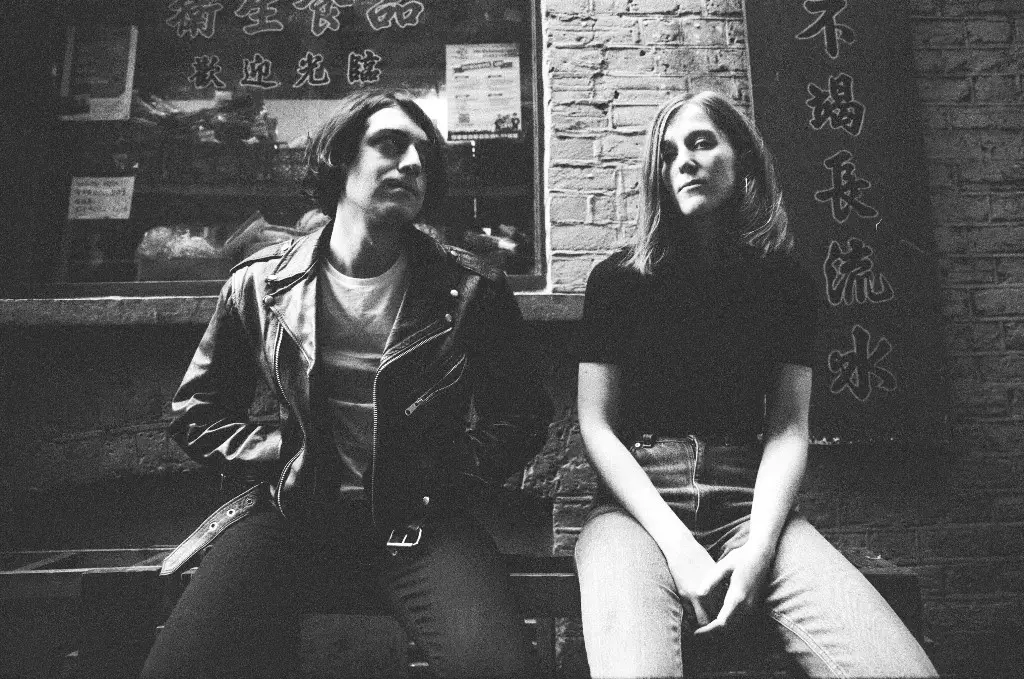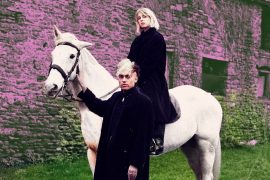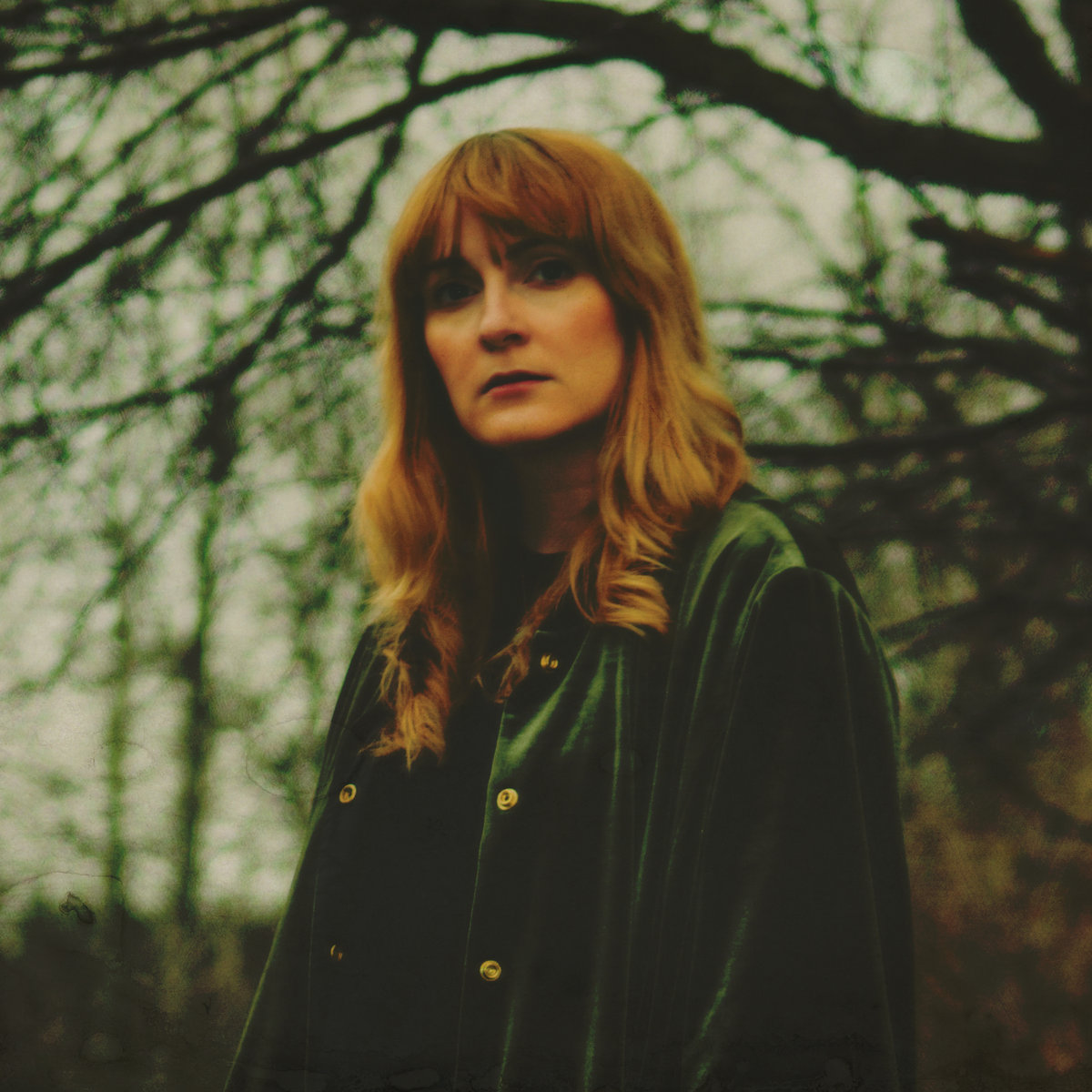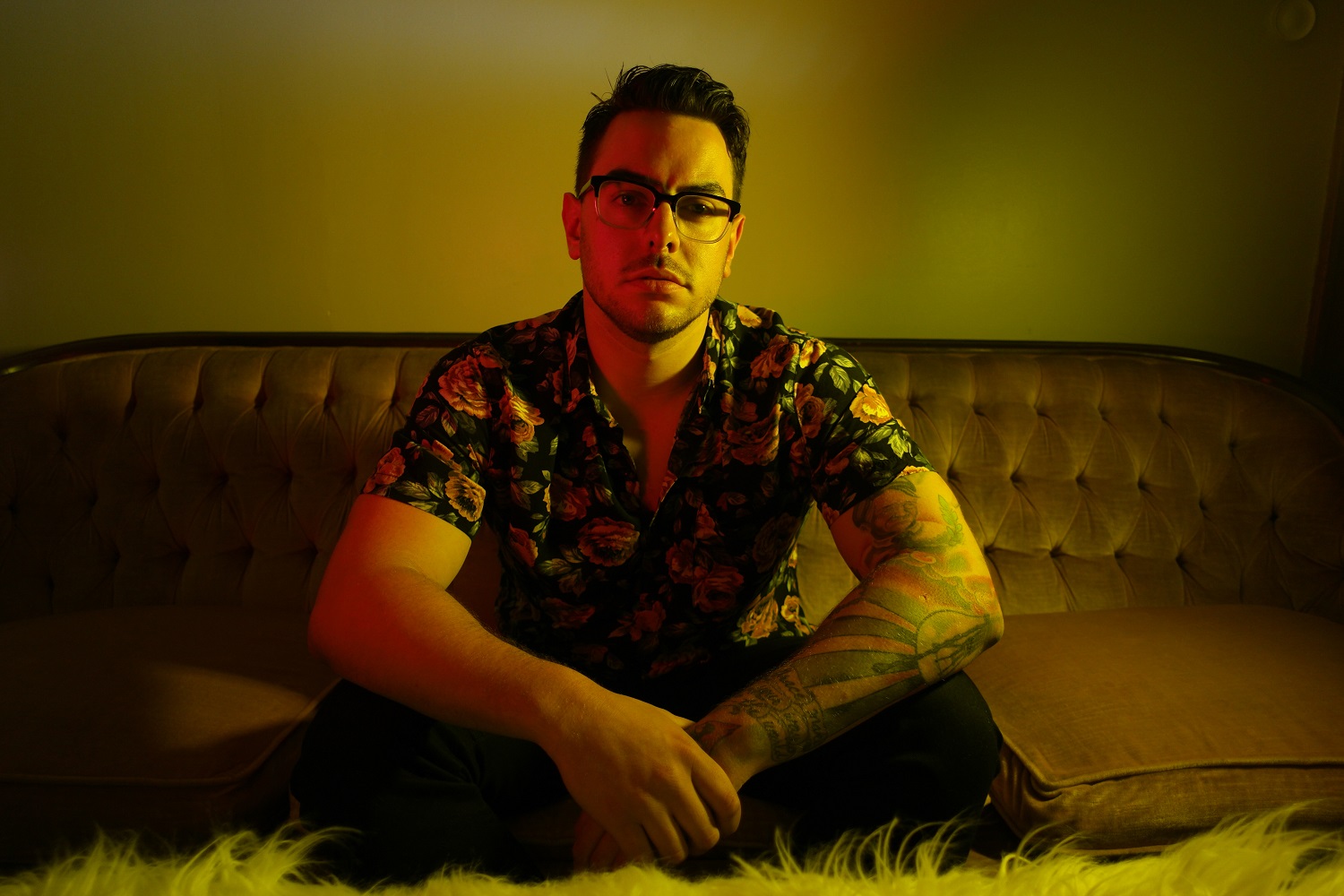Anna B Savage’s new ‘These Dreams EP’ is an emotional extension of the universe of her debut album, ‘A Common Turn.’
Stream: ‘These Dreams EP’ – Anna B Savage
Early this year, Anna B Savage released her debut album. A Common Turn was a visceral and immersive collection of songs, all wound together tightly by Savage’s spellbinding voice. Savage’s writing traverses the intensely personal to the highly referential, relaying intimate moments on train rides and fantasies about Tim Curry with the same unsparing openness. There is a reclamation of questioning In her words, of vulnerability. Moments of deep sadness and incredible uncertainty are all delivered with the same confident ethos: I am allowed to feel these feelings.
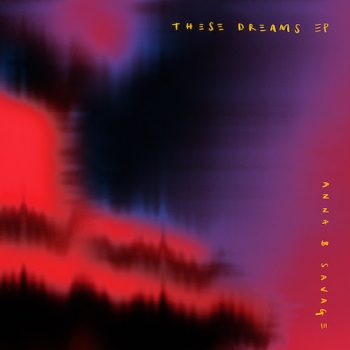
As with any record, more songs were recorded than could fit on A Common Turn; the remainder were casualties of sequencing decisions. But nine months after the release of A Common Turn, Savage has released the These Dreams EP (out September 24 via City Slang), featuring the four songs that didn’t make it onto the original record. For Savage, these were not B-sides or extras – they are integral parts of A Common Turn’s universe, serving as both expansion and context.
Savage calls these songs “the edges” – the extremes that don’t quite exist on the record. There’s the more distanced “Hairier Now,” a cool observation of change after a long separation from someone. There’s the darkly sensual Edwyn Collins cover and the tongue-in-cheek, somewhat brash “Since We Broke Up.” But the EP’s pivotal moment lies in its opening seconds, with a thrashing wall of guitars and the siren wail of Savage’s voice blaring, “Wake up.” The song is a subconscious scream, something almost primal, and is jarring after the softness of A Common Turn. With These Dreams EP, Savage is telling us she has more to say. She isn’t finished showing the world what she’s capable of.
— —
:: stream/purchase These Dreams EP here ::
A CONVERSATION WITH ANNA B SAVAGE
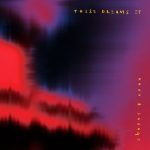
Atwood Magazine: This EP has a much harder sound than the rest of the songs on the record. What emotional place did these songs come from in contrast to the others? Or were they all coming from the same space?
Anna B Savage: Yeah, it was all the same stuff. In my head, these are still part of A Common Turn. We went through so many different iterations of what the sequencing could be. And you’re restricted to like, 46 minutes for a vinyl. They were part of the same recording and writing time, but the sequencing we chose didn’t have these ones in it. But it’s interesting, because they are, like you say, a lot harder. And I personally feel like they’re the edges, emotionally, of the stuff that was happening. And when I say edges, I don’t mean peripheral. I mean extremes. Which is also quite interesting, that the extremes didn’t make it onto the record. Now that the album’s been out, I see it in a very different light.
Now that people have been sitting with the album for as long as they have, how do you think these songs extend the arc of A Common Turn?
Anna B Savage: It’s interesting, because again, it’s the extremities thing. I think they’re harder and harsher than a lot of the songs on A Common Turn. But I also think that they’re funnier than the other songs. It’s that juxtaposition of levity and absolute crushing despair all at once, which seems to be one of my favorite things to write [laughs].
Was there a chronological narrative to the album or were they more vignettes?
Anna B Savage: I think of them now as vignettes. There was a chronological thing when I was writing them, but then, sitting with them for such a long time, they definitely become more like vignettes and more ephemeral – they just float around in space. Whereas, immediately after writing them, I was like, “Oh, well, they have to go in order.”

“Since We Broke Up” feels like “Since U Been Gone” for the current times. “Hairier Now,” which is about the same person that “Baby Grand” is about, has a much different tone. Can you talk about these variations?
Anna B Savage: With any breakup, it’s day by day. Sometimes you feel like all of those things. Sometimes you feel wistful and lamenting, and then 20 minutes later, you’re cackling and being like, “I can do whatever I want on my own, and it’s fucking great.” It feels really heady and really strange to have that. At least, that’s my understanding of my breakups, anyway – oscillating wildly between emotions and feeling really justified and then being like, “Eugh” [laughs]. But I think “Hairier Now” is a weird one, because it is a breakup song, but it’s also so far removed from the relationship itself. When you’re that far away from a relationship, it is much easier to be nostalgic about it, and to be a little bit softer with it. Maybe that’s also the juxtaposition between “Hairier Now,” which is softer, and “Since We Broke Up,” which felt like the more immediate response, being like, “This is great, I made the right decision.” It’s also having that narrative with the person which you’re never gonna have. So it felt quite nice to be able to put that into a song — it’s like, I’m not gonna ring up my ex and be like, “Oh, by the way, I’m feeling good and haven’t really missed you.” You’re so used to speaking to someone so much that it does feel weird, even if it’s the right thing, to stop that conversation.
The centerpiece of this EP is “These Dreams,” which, as far as I can remember, is one of the only pieces from the A Common Turn universe that has any kind of filter or effect on your voice.
Anna B. Savage: Yeah. It’s a really difficult song, actually. I listened to the EP in the order that I was releasing it, and I literally hadn’t listened to [that song] for a year and a half, and I was like, “Oh, fuck, am I actually gonna put this out? That’s terrifying.” I really wanted it to sound like Scott Walker on Bish Bosch. The opening track is a wild wall of noise out of nowhere, and I wanted [“These Dreams”] to be as abrasive as that felt. I wanted it to be as harsh and uncomfortable and challenging and brutal as it feels to have thoughts like that almost all the time. And to have like a dream like that and wake up from it being like, “Holy fucking shit, that was horrible.” I did actually have that dream. And it was really unpleasant. It was when I was midway through the album, and I was really struggling to think that it was a real thing. I guess this is like the most obvious explicit use of songwriting as catharsis, or an expulsion of some sort of emotion. I had two nightmares last night — they just sit in your body, and you have to do something to get rid of them. And it feels really hard sometimes. That one, especially, felt very Jungian, like very philosophical, but in such a brutal way. And I was just like, “I’m not ready for this. I’m not okay with this. I’ve got to get it out.”
The beginning of the song sounds like an emergency. It reminded me of the only time in my life I've ever had sleep paralysis, where I was stuck in a nightmare and could not get out of it.
Anna B Savage: Yeah, it’s me trying to snap myself out of it. Like, desperately trying to claw someone out of something that’s obviously like scaring the shit out of them.
What relationship do dreams have to your music?
Anna B Savage: I have always been really interested in my dreams, but I’ve always been almost too shy or embarrassed to talk about them or to express that. I’ve always written my dreams down, and I definitely have had dreams where I feel like there’s a level of synchronicity with what’s going on in my life or a level of understanding that feels kind of spiritual or magical. I think that, in the past, I would have been reticent to tell people about that. I definitely find that dreams can be very strong — but they can be absolute nonsense as well, which I also really enjoy. About halfway through writing A Common Turn and relatively close to the “These Dreams” dream that I had, I had a dream where I hilariously met another version of me. At this point, I was really trudging through being like, “I’m never going to finish an album. It’s just never going to be a thing I can do.” And the dream version of me said, “You’ve written half of an album, and it’s got too many birds in it.” I remember being like, “Ah, sick. Okay, cool. More birds” [laughs]. Maybe my conscious brain wasn’t willing to admit that to myself. And my subconscious brain was like, “Hello, slow on the uptake?”
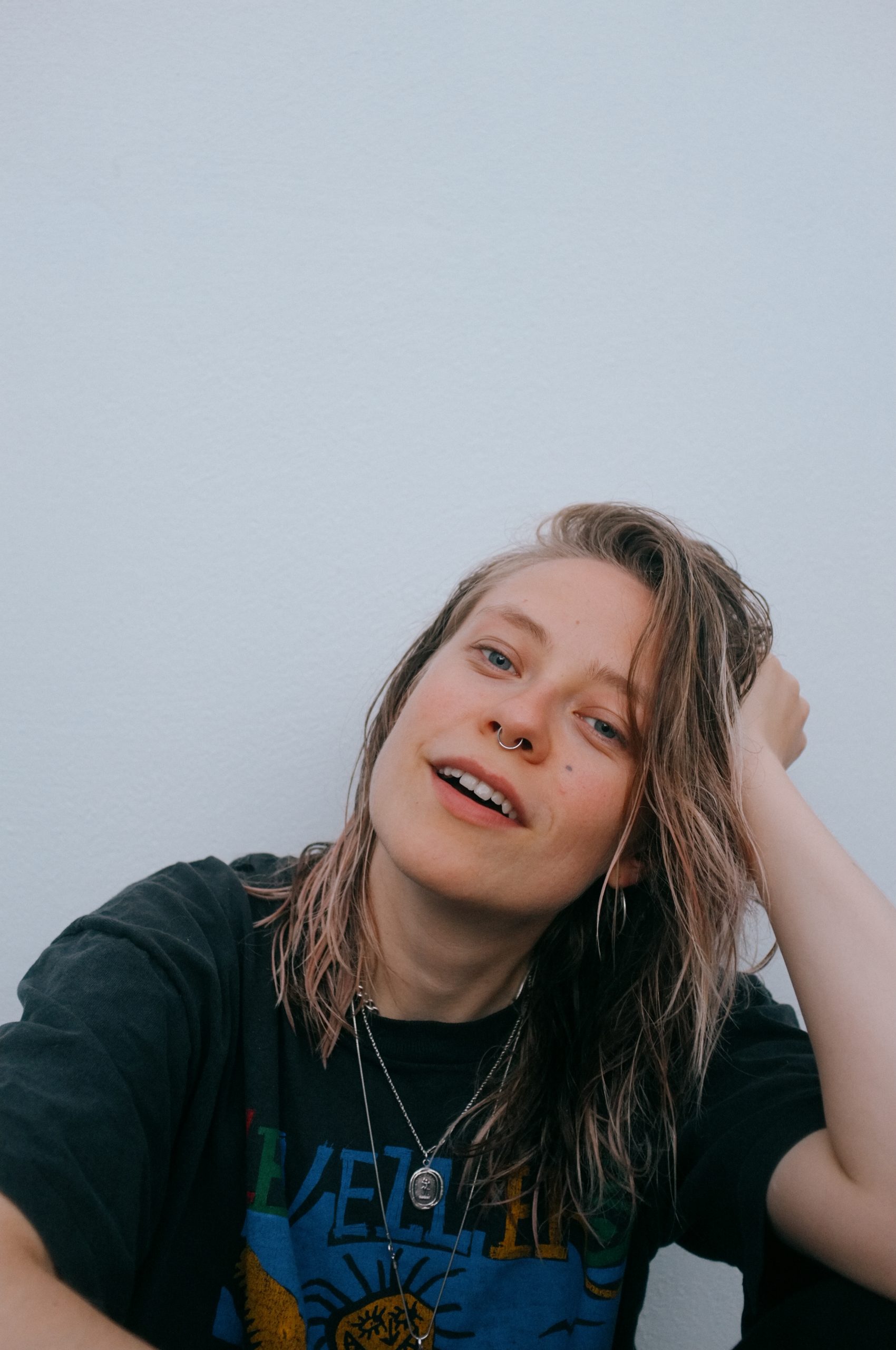
I wanted to ask about the Edwyn Collins cover. You talk about his owl drawing on the mug in “Baby Grand,” which is part of a series of birds he drew after a stroke. Then there’s this “A Girl Like You” cover. I get the sense that he holds a very symbolic place in your life.
Anna B Savage: It’s really weird, because I wouldn’t have considered myself a big fan. I don’t know all of his music, and I haven’t listened to all of it. I’ve never been a good fan. I like certain things and I get enthusiastic about those things. But I love his output. I love his variety of output as well. I think someone who is that inherently naturally creative, and seems to be willing to follow that creativity where it will go is amazing. And also in the face of a massive stroke, still being like, “Okay, I’m going to draw a bird every day.” Like, I can barely brush my teeth every day [laughs]. It’s like his whole life is an homage to creativity. His film, The Possibilities Are Endless, was a big inspiration when [Jem Talbot and I] were doing our Baby Grand film together. I don’t know. Sometimes life feels like it gives you pieces of a weird massive jigsaw, and if you’re paying attention, they will appear to you. Edwyn Collins’ “A Girl Like You” was a big song for me just because Empire Records was such a big film for me when I was little. And it’s just the sexiest fucking song I’ve ever heard in my life.
Your version is much darker than his. What led you to this arrangement?
Anna B Savage: You know, you want to put your own stamp on something. I’m also not very good at the…you know, [snaps cheesily], although I would love to be and I hope to be in the future, but that’s not really my thing yet [laughs]. I also didn’t feel like that [vibe] would fit particularly well with the rest of These Dreams. And like you said, [These Dreams] is harsher, and it’s got a different texture to A Common Turn. Will [Doyle] and I were talking about it yesterday, and we were like, “It’s kind of metal.” I felt like it would add another string to the bow of the These Dreams EP — it’s just a sexy song. But there are also weird elements to it. The way he sings it is so fun, and it’s so sexy and so smarmy, whereas I was like, “It’s a really eerie melody that has so many eerie hooks in it.” I wanted to lean into that.
Yeah...it’s sexy in the way that David Lynch films can sometimes be sexy, in that creepy, gritty way. I'm also wondering, and maybe the answer is simply because you love it, but I always find it really interesting when people do one cover on an album that is really personal. It probably says something about the person – was there something about this song that made you say, “This belongs with my songs”?
Anna B Savage: I’m slightly reticent to say that it belongs in my songs, because I don’t know if I would hold my songs in such high esteem to be like, “A Girl Like You” belongs with my stuff. But I think it’s something to do with the fact that I wanted it to still be tied into A Common Turn. These Dreams has all the extremities so it’s harsher, but it’s also funnier. And then I was like, “What about like the sex stuff?” Like what about all of the sexual question marks on A Common Turn? I wanted those to be in there somehow. And so in that way, it felt like the perfect thing because it’s a very sexy song. It was very sexy for me personally, because of Empire Records. But also it has the tie-in with Edwyn Collins himself and with our mug and with birds and with all of that stuff. I don’t know, maybe it does say something about me, but moreso, it just fit the puzzle of what I wanted to do.
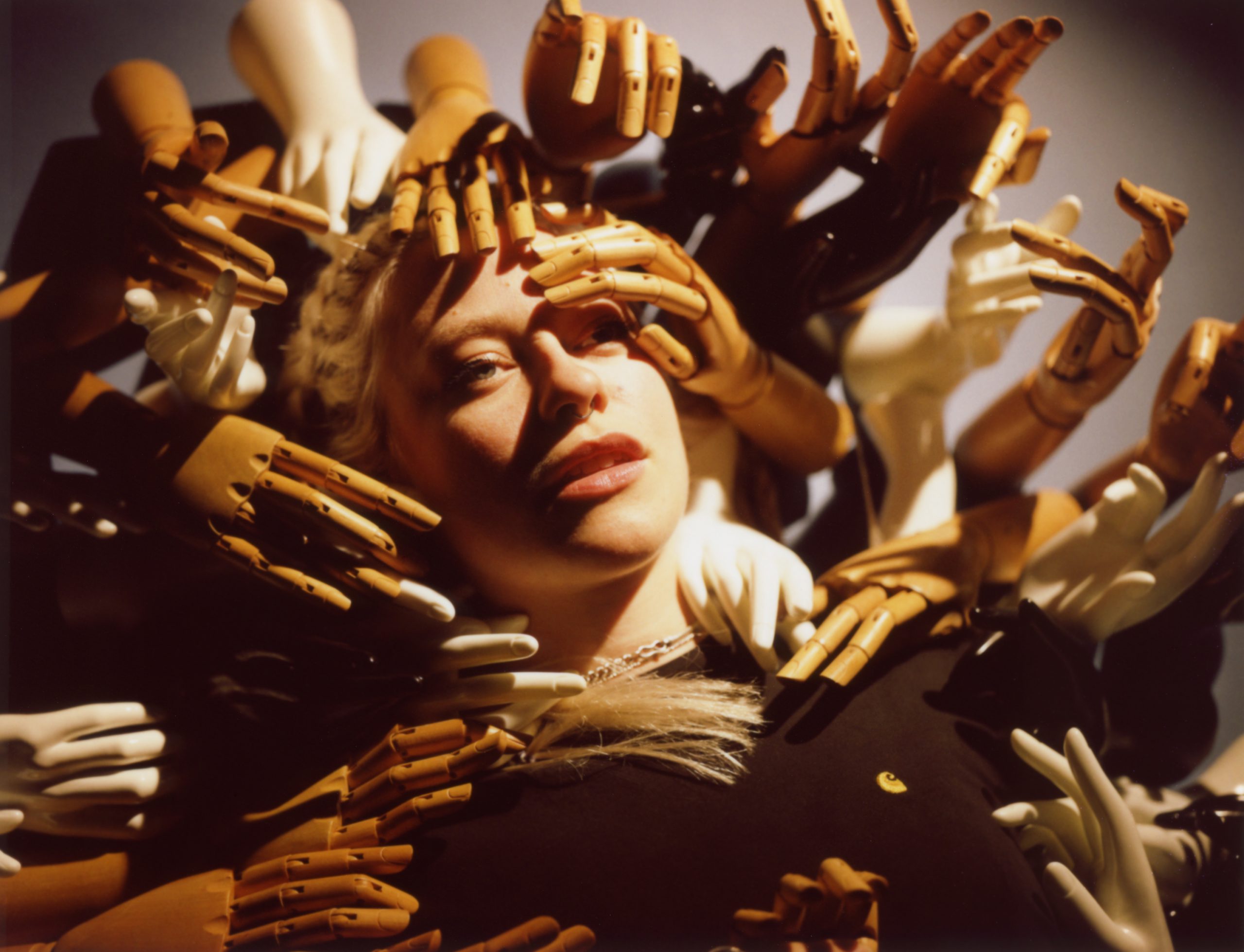
Anna B Savage: My standpoint was always and has continued to be, “I’m always entitled to change my mind.” I feel like on A Common Turn, there’s a lot of question marks. On These Dreams, there are a lot of statements, but they all bend to one another. That tongue-in-cheek line in “Since We Broke Up,” “I hope I never fall in love again” — that’s funny. I guess it’s an element of not caring quite so much. I feel like I’m allowed to say statements, and I’m allowed to change my mind, because I’m a fucking human being. It’s a really weird thing that we’re held to the idea that we can’t change and we can’t move and we can’t adapt and we can’t grow, and that we can’t better ourselves or further ourselves. And the idea that you have to always be one person. Everyone’s changing all the fucking time. Like, even our cells are different from seven years ago. None of me is the same as I was seven years ago. And that’s a bonkers thing to think about. So my only real certainty is that everything changes all the fucking time. So I’m like, “I can say this shit. And it’s fine. Because maybe I’ll change my mind.” And I don’t mind that. That really doesn’t really answer anything, but those are my thoughts [laughs]. Anna B Savage: I mean, it probably sounds like each song has been written by a completely different person. They sound like different personalities. Maybe there’d be an element of being like, “Fuck, being in that brain would be exhausting.” Which, by the way, it is [laughs]. I think that would be my kind of overarching thing. I don’t know if that answers the question. Anna B Savage: I find it really, really hard. I think giving yourself a huge amount of distance from something and then coming back to it is probably the only way that you can actually get any perspective. But even then, it feels almost impossible. But I’d say with the These Dreams EP, all of these things can happen inside one person. And it can all be happening concurrently. You can feel jubilantly defiant and you can also feel crushing self-doubt and feel like you’re the shittiest person in the world. And then also be slightly melancholic about someone, and then also be like, “Well, maybe I feel a bit sexy, but also maybe I’m creepy.” All the different things all at the same time. — — — —
On the album, there was very much this recurring theme of what you're talking about with the sexual question marks, and this theme of reclaiming vulnerability and reclaiming questioning in general. That appears in these songs in a different way.
When I talked to you last, you were talking about how as a student of poetry sometimes you ascribe things retroactively to your own music. If you were looking at this EP as someone who hadn’t written it, what about it would stick out to you?
I’m thinking of it like, looking at your own art objectively. Is that even possible?

Connect to Anna B Savage on
Facebook, Twitter, InstagramDiscover new music on Atwood Magazine
? © Aaron Dees
:: Stream Anna B Savage ::

